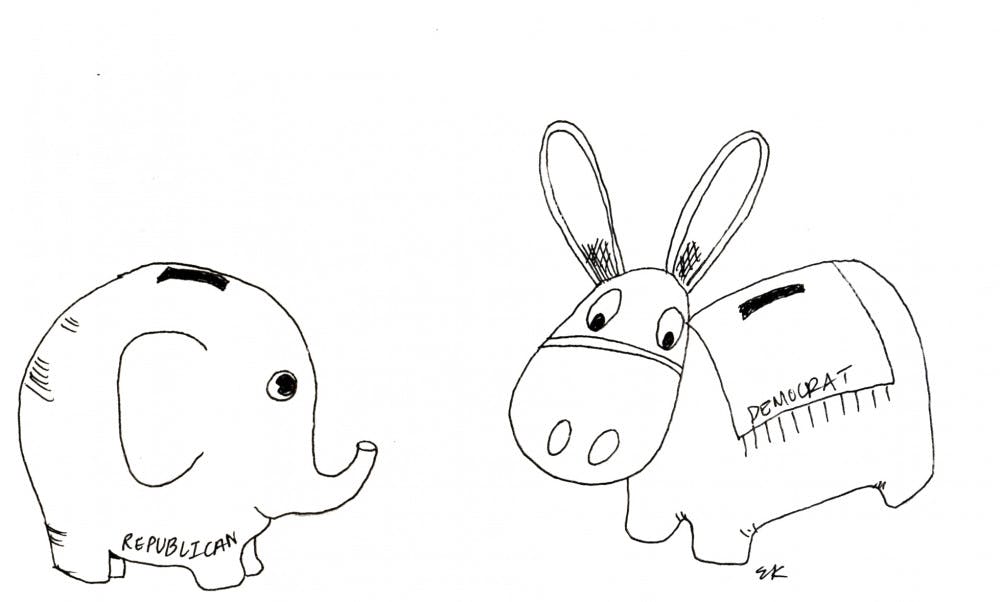What if I told you that there was a solution to a major policy issue facing our nation today that President Obama (D) and Ways and Means Chairman Paul Ryan (R-WI) agreed on? Would you believe me? Well, there is. Both President Obama and Congressman Ryan agree that expanding the Earned Income Tax Credit (EITC) could lift millions of Americans out of poverty.
The EITC is a form of wage subsidy that takes into account a family’s income and number of dependents in order to calculate the amount of support the family will receive from the government. This is similar to a negative income tax (an idea proposed by President Nixon). The difference is that the EITC has a certain threshold for work to be eligible for the subsidy. Many economists credit the EITC for a substantial portion of the falling poverty rates and increased employment numbers of the 1990s.
The basic philosophical idea behind the EITC is that work should pay. Economically, the EITC is designed to impact a worker’s (or potential worker’s) choice between labor and leisure. It does this by raising the relative cost of leisure (wages lost by not working), which will in turn cause workers to demand less leisure. In economics, this is described as the “substitution effect”; one commodity, leisure, is being substituted for another, labor, due to a change in prices.
Some who are reading this might say, “But wasn’t this guy against the minimum wage, which also acts as a wage increase and could have the same effect?”
There are several key differences between the minimum wage and the EITC. As I have explained in previous columns, the minimum wage acts as a price floor, and comes with a conservatively estimated 500,000 plus lost jobs (Congressional Budget Office). Moreover, of the aggregate increase in earnings taken home from the minimum wage hike, Michael Strain of the American Enterprise Institute calculated that only 19% of those earnings would go to households below the poverty line. The EITC is much more targeted, and despite IRS flukes, the vast majority of increased earnings from the EITC have gone to the families that need them the most. The IRS in 2009 estimated that the EITC lifted seven million Americans out of poverty. Even so, it is not perfect. The program gives additional help to families with dependents, which is a good thing. However, the program needs to be expanded to give more benefits to all workers.
Another interesting idea that should be looked at came from the UK Conservative Party, and has been adapted by Congressman Ryan. The idea is to combine some of the almost one hundred anti-poverty programs into one “universal credit”. The idea is rather simple – remove some of the hoops to jump through so people get the entitlements they are, well, entitled to. This idea would provide the same benefits at a lower price tag, mainly by decreasing administration costs. Rep. Ryan goes on to argue that the program could also cut down on entitlement fraud by making the process more streamlined.
Unlike the EITC, the universal credit program is rather untested. Recently in England, it has experienced a bumpy rollout. The UK government tried to set up a website, on which people could register for their benefits, but the site has been plagued by glitches and other difficulties (maybe they used the same contractor as Healthcare.gov?). If those hurdles could be cleared, I think that the universal credit could really save the taxpayers some money while providing the same benefits to those who need them.
In any case, I think that expanding the EITC as well as creating the universal credit are issues that are politically feasible with the 114th Congress and President Obama. I have said it before, and I will say it again; Republicans need to legislate in a way that materially improves people’s lives. There is nothing that would be more devastating to the GOP in 2016 than two years of Republican control with nothing to show for it.
That means they will need to support legislation that can garnish 60 votes for cloture in the Senate, and will be signed by President Obama. However, the fight may not be over the merits of these two programs, but rather over how to make them deficit neutral. The universal credit, if scored favorably, could pick up some of that slack for expanding the EITC; however the rest of the offsetting revenue or spending decreases will need to come from somewhere. I hope that the two parties will work to reconcile these differences and pass an EITC expansion, because the bottom line is those Americans who would benefit can’t wait.


